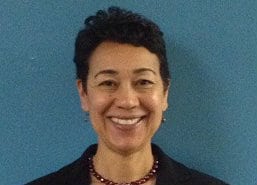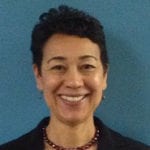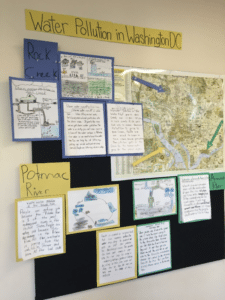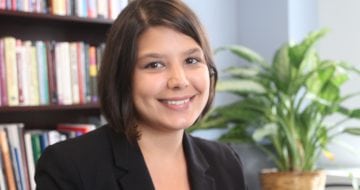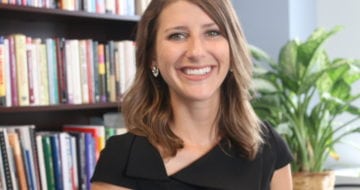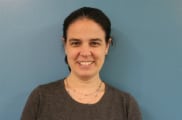On a recent sunny afternoon I was in conversation with a mom regarding the senior experience her son was about to embark on. “He’s got one more month in high school and is going to do a four-week internship. He’s decided to return to his middle school and help out the physical education program, working with the PE teacher.” While this kind of senior experience is certainly commendable as it provides students with opportunities to expand their learning, draw connections between classroom learning and the world of work, and acquire hands-on experience in a field of their choosing, I could not help but wonder: How much more powerful would students’ preparation to enter postsecondary options be if they had more than just four weeks devoted to helping them transition? What if it was possible for all students to be able to explore their passions in an environment that set a high academic bar, as well as preparing them with the “academic mindset” to keep believing in themselves and overcome obstacles?
This longer-term preparation is evident in schools such as Capital City Public Charter School in Washington, DC, which I recently visited. The school is part of the EL Education (formerly Expeditionary Learning) network, and I was fortunate to hear from a senior, Jacqui*, as she discussed her senior expedition, something all students have to do as part of their graduation requirement. Learning expeditions are in-depth research projects on a single topic, where students present their work to teachers, peers and community members. As I listened to her 40-minute defense of her research project on youth sport programming, four things struck me:
- It pays to prepare students over the long term;
- Focusing learning on what matters to students has real value;
- Setting the academic bar high is vital, and
- The focus needs to move beyond just academic learning.
Long-term Preparation
As Jacqui described her project, it was clear from her relaxed and prepared demeanor that this was not her first time presenting to an audience. Indeed, at the school, all students, whether entering in Kindergarten or later in middle or high school, have multiple opportunities to work on learning expeditions. In 9th grade, Jacqui recalled, they had to annotate all their reading material, preparing them to engage with all texts in a structured way to ensure they understood what they were reading about. In a 10th grade project she focused on gay rights, attended Capital PRIDE (a local LGBT – lesbian, gay, bisexual and transgender – pride festival), and conducted many interviews with LGBT youth. As she observed, “I got better with interviewing others.” She also built connections with outside organizations and improved her writing skills. The preparation for the senior defense continued into 11th grade. Jacqui had to write personal essays focused on determining what her academic and extracurricular priorities were and how she could get better organized. In 12th grade the first semester was dedicated to a senior expedition class that taught her the skills, such as research and writing skills, as well as time management, that she would need to successfully complete the expedition.
Engage students in what they are passionate about
Jacqui’s passion for her topic was obvious as she enthusiastically shared her research with us, and she invited our active participation throughout the presentation. Students working on their expeditions get to focus on something they really care about, and as Jacqui noted, “it was your project, your interests.” As an accomplished athlete, she was eager to research youth sports programs that addressed racial and gender barriers. This topic clearly resonated with her and it was reflected in the wide-ranging research she conducted, the individuals she consulted, and the programs she visited and participated in. Her passions was also evident in her ongoing desire to become a sports coach and to effect changes in her school’s sports programs.
Set the academic bar high
While passion drives the choice of topic, high academic expectations ensure that students at the school are well-prepared to graduate with solid research, problem-solving, and critical thinking skills. Jacqui explained that, after she chose her topic, she had to devise research questions, determine sub-questions, and then create an annotated bibliography of at least 25 sources. She also consulted two experts on youth sports who served as her mentors, conducted a workshop with students who wrote about gender and racial barriers they encountered, attended a local sports-related event to garner more information for her project, and created a video based on her research at that event. Before being able to present on their topic, students have to write a 10-page paper laying out their research, arguments, and recommendations, a testament to the program’s high academic expectations.
Focus on “academic mindset” in addition to academic learning
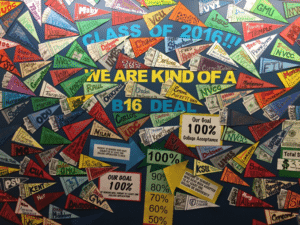 The focus of the project does not rest solely on academic achievement. Students have to reflect, as they write in their portfolios, on what kind of learner they are, and this certainly helps prepare them for postsecondary success. As Jacqui noted, “I learned that I am a kinesthetic learner – I like to walk around while learning.” She also had to learn to focus and stay on track, ensuring that her project was completed during the November to May time period. “I learned to handle long nights – that was stressful,” she commented. She also commented on areas for improvement – she really had to work on procrastination issues, find a better balance between play time and work time – and deal with her Netflix addiction!
The focus of the project does not rest solely on academic achievement. Students have to reflect, as they write in their portfolios, on what kind of learner they are, and this certainly helps prepare them for postsecondary success. As Jacqui noted, “I learned that I am a kinesthetic learner – I like to walk around while learning.” She also had to learn to focus and stay on track, ensuring that her project was completed during the November to May time period. “I learned to handle long nights – that was stressful,” she commented. She also commented on areas for improvement – she really had to work on procrastination issues, find a better balance between play time and work time – and deal with her Netflix addiction!
What results from all this preparation? At the end of her presentation Jacqui posed the question to herself: “Do I feel prepared to go on to college?” Her answer was a resounding “Yes!” The in-depth, consistent preparation she experienced at the school certainly contributed to that conviction. Regretfully, this kind of preparation is certainly not the norm for most students. Even in the schools where such programs are offered, they are often relegated to the last few weeks of high school and are not necessarily mandatory for every student. Jacqui’s resounding “Yes!” is ideally what I would like to hear from all students as they leave high school behind and embark on the next phase of their learning and growth.
*Not the student’s real name
Loretta Goodwin is a Senior Director at the American Youth Policy Forum.


